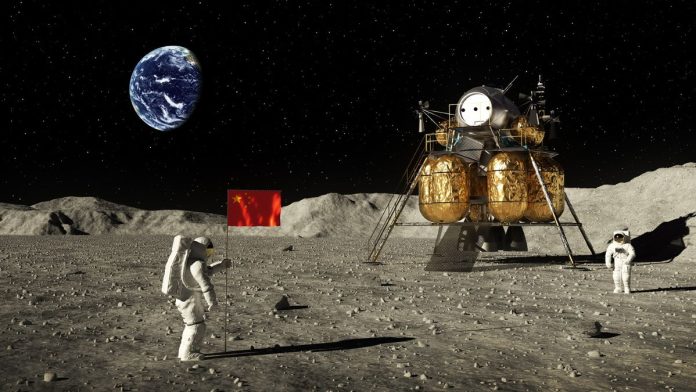

South China Morning Put up introduced that Ethiopia’s Area Science and Geospatial Institute (SSGI) and the Kenya Superior Institute of Science and Know-how (KAIST) have signed memorandums of understanding (MOU) to hitch the China-led Worldwide Lunar Analysis Station (ILRS), bringing the overall to greater than a dozen taking part organisations globally.
China’s Deep Area Exploration Laboratory (DSEL, Tiandu Laboratory) representatives signed these MOUs with SSGI and KAIST. The ILRS initiative goals to ascertain a everlasting base on the moon by the mid-2030s and has attracted participation from numerous international locations and establishments globally.
On April fifth, Hu Zhaobin, the deputy director of China’s Deep Area Exploration Laboratory, signed an MoU with SSGI director Abdissa Yilma on the Ethiopian capital of Addis Ababa, as DSEL’s official WeChat account reported. Throughout their assembly, Yilma expressed the institute’s dedication to actively taking part in and selling the development of the ILRS. In the meantime, Hu hoped the mission would contribute to creating Ethiopia’s aerospace sector and house exploration applied sciences.
Then, on April eighth, Mr Zhaobin signed a cooperation memorandum with KAIST performing principal Jennifer W. Khamasi throughout his go to to the Konza Techno Metropolis south of Nairobi. Through the assembly, KAIST council chairman Emmanuel Mutisya said that the institute would seize the analysis and training alternatives from collaboration with the ILRS. He additionally assured Hu that KAIST would work in the direction of persuading the Kenyan authorities to hitch the mission.

Hu invited Yilma and Mutisya to China’s Worldwide Convention on Deep Area Exploration, generally known as the Tiandu Discussion board, in September 2024. These partnerships have been established through the DSEL’s participation within the 2024 NewSpace Africa Convention in Angola, held between April 2nd and fifth. Hu’s keynote tackle on the convention marked the primary public name for African nations and organisations to hitch the ILRS initiative.
At the moment, the ILRS has 9 nation members: China, Russia, Venezuela, Pakistan, Azerbaijan, Belarus, South Africa, Egypt, and Thailand. It additionally consists of a number of members from analysis institutes, universities, or firms.
